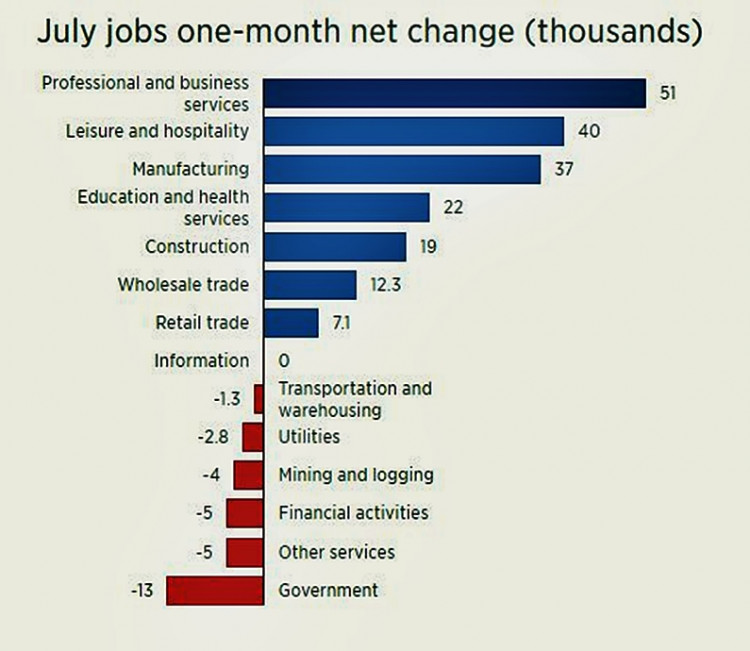The United States' jobs report for July released over the weekend shows the economy created fewer jobs than expected, while wage growth remained low despite record revenues for many U.S. firms.
The Bureau of Labor Statistics, which issues the jobs report, said U.S. employers added 157,000 net jobs in July, which was far fewer than the 190,000 increase estimated by economists. The unemployment rate nationwide fell to 3.9 percent from four percent, approaching an 18-year low.
The bad news is that wage growth did improve but remained weak. The government said average hourly earnings rose by a paltry 0.3 percent on July month-on-month, which was an insignificant gain of 0.1 percent. Year-on-year growth wage growth was unchanged at 2.7 percent.
The leisure and hospitality, manufacturing and business services industries led to job growth in July. The professional and business services sector reported the biggest net job gains for July, adding 51,000 jobs. Of this total, more than half came from hiring in administrative and support services.
Leisure and hospitality job growth was also strong and added 40,000 more jobs. This industry includes jobs in the performing arts, spectator sports, and food services.
Manufacturing added 37,000 jobs, thereby extending a strong run in job growth. Experts said this indicates Trump's trade war hasn't negatively affected hiring decisions -- for now. Over the past year, manufacturers hired 327,000 people, the most since the 12 months through April 1995.
Construction added 19,000 jobs despite a slowdown in residential home construction due to ballooning home prices throughout the U.S. The retail sector recovered somewhat and gained 7,100 jobs in July after losing more than 21,000 jobs in June.
On the other hand, job losses were particularly severe in sporting goods, hobby, book, and music retailers, which lost a net 31,800 jobs.
The government also reported that fewer people filed for unemployment benefits for the first time. Initial jobless claims were near a 50-year low in the week of the BLS survey for the jobs report. Jobless claims are an early sign of mass layoffs in the labor market because many people apply for benefits soon after they lose their jobs.
"The important point is that there is no sign of overheating but that aggregate wages and salaries (jobs x hours x earnings) are growing at a brisk pace," said Neil Dutta, head of U.S. economics at Renaissance Macro Research, a research firm based in New York.






